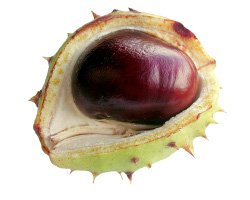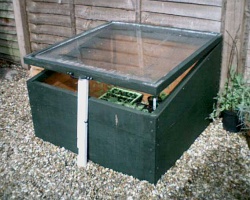 We’ve had an email from Kate/Glitter Pixie:
We’ve had an email from Kate/Glitter Pixie:
Hi, I wonder if the Recycle This community can help. My husband and I have finally moved into a house with outdoor space and want to seize the opportunity to begin composting. However, our yard is completely concreted over so a normal compost bin won’t work. I’ve done a bit of research and think a wormery might be the ticket but they are so expensive! I just want to make a haven for the little wriggly guys we buy, so does anyone have any neat ideas about how to build a wormery and what to use? (obviously reusing general household junk where possible). Thanks so much you guys, absolutely love the site, you are awesome!
(She’s right – you guys in the Recycle This community are awesome!)
Normal compost bins would work on concrete – we just had a piece of wood underneath our open-bottomed one at our old house to facilitate air circulation and moving it around (although we have yet to move it to our new house – that’s going to be quite a effort!) – but wormeries are great too, working a bit quicker so don’t need to be as big – plus who doesn’t want 1000 new wriggly pets? ;)
I’m tempted to build a wormery too for dealing with dog & cat poo (the output can’t be used on veg, which limits our use of it here but better than it going to landfill) so any suggestions?
A lot of the commercial ones I’ve seen have been tray-based to allow easy rotation/access to the new vermicompost. The trays have mesh bottoms to allow the worms to move constantly upwards in search of food – when they reach the top, whip the bottom tray out to the top and start filling that one instead. The trays should fit together snugly – the bottoms touching if it wasn’t for the waste matter – rather than stacked to allow the worms to travel about. They also tend to have a drip tray at the bottom for collecting liquid run-off (which is a great fertiliser).
There are also ones more like purpose bought compost heaps – with an access hatch at the bottom. Possibly easier to make but apparently harder to keep healthy when you’re new to wormerying.
Also any suggestions for where to get the worms? Any types of worms to look out for/avoid?
 Well, this isn’t so much as “reuse or recycle” question as saying “instead from leaving them there to rot, can conkers be used for anything fun or practical?” It is kinda a “reduce this” question too – can I reduce my use of something else by using conkers instead?
Well, this isn’t so much as “reuse or recycle” question as saying “instead from leaving them there to rot, can conkers be used for anything fun or practical?” It is kinda a “reduce this” question too – can I reduce my use of something else by using conkers instead?


 We’ve had an email from Kate/Glitter Pixie:
We’ve had an email from Kate/Glitter Pixie: So how is your garden/allotment/window box doing this summer?
So how is your garden/allotment/window box doing this summer? (I suspect they’ll be an overlap between this and
(I suspect they’ll be an overlap between this and  We’ve had an email from Martyn:
We’ve had an email from Martyn:














